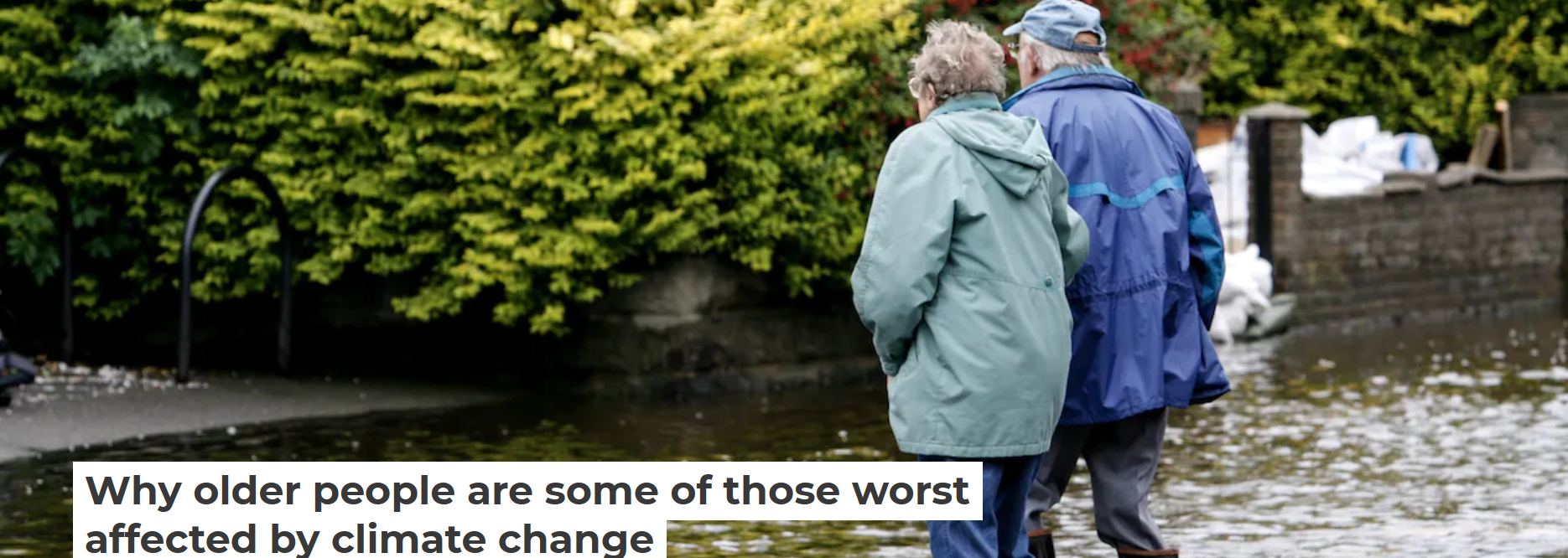Why older people are some of those worst affected by climate change. While we are all affected to some extent by extreme weather, it is older adults. Especially older women and those with disabilities, who tend to be the most vulnerable. Their struggle is partly determined by age but also by pre-existing health conditions, mental wellbeing, and social and economic circumstances.
As weather extremes become more frequent and intense due to climate change, the world’s population is getting older. This poses a significant global challenge. In 2030, around one out of every six people worldwide will be 60 or older. By that time, this age group is expected to number 1.4 billion and increase to 2.1 billion by 2050.
Unfortunately, many older people lack the physical, mental, social, and financial resources needed to avoid or minimise the effects of extreme weather. Especially in the global south. We know heatwaves can be deadly for older people due to a reduced ability to regulate body temperature in old age, for instance. This is made worse by chronic health conditions such as cardiovascular and respiratory disease, diabetes, and susceptibility to dehydration.
Why older people are some of those worst affected by climate change
In the past two decades, heat-related deaths among people aged 65 and above have almost doubled globally. It reached approximately 300,000 deaths in 2018. The 2022 European summer resulted in 9,226 heat-related deaths among people aged 65–79 years, with a significant increase to 36,848 deaths for those aged 80 and over.
It’s not just heatwaves. Flooding, for instance, can also cause immediate injury and death to older adults. The 2022 Pakistan floods affected around 2.3 million older people. Many of them weren’t mobile enough to escape or were particularly vulnerable to diarrhea, malaria, and other diseases that spread quickly in flooded areas.
With wildfires, older people are less likely to receive timely warnings because of poor access to phones and other digital communication technologies. As a result, they can remain unaware and ill prepared to confront impending danger, making evacuation difficult. They are also more likely to suffer significant financial losses as they lose their own homes and may struggle to recover with limited incomes.
Tropical cyclones, such as hurricanes, have been linked to increased hospitalisations among older adults. In early 2023, Cyclone Freddy struck several countries across southern Africa. Malawi was worst affected, and though older adults suffered the most, they were the last to be helped.
Read more at theconversation.com
Photo: theconversation.com


Leave a Reply